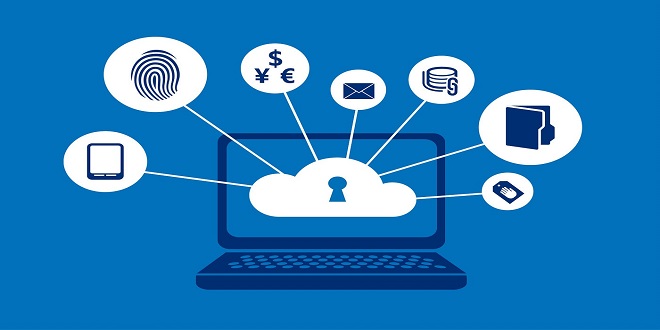Introduction
In today’s digital world, where every click, search, and interaction leaves a trace, maintaining online anonymity has become increasingly challenging yet crucial. With concerns over data breaches, surveillance, and invasive tracking, individuals are seeking ways to protect their privacy and preserve their anonymity while navigating the vast expanse of the internet. This comprehensive guide aims to equip you with the knowledge and tools necessary to safeguard your identity and maintain anonymity online.
Understanding Anonymity
Anonymity, in its simplest form, refers to the state of being unknown or unidentifiable. It grants individuals the freedom to browse, communicate, and express themselves without fear of being traced back to their real identities. However, achieving true anonymity in the digital realm is a complex endeavor, requiring a combination of technological tools, behavioral practices, and legal awareness.
The Importance of Online Anonymity
The significance of online anonymity cannot be overstated. It serves as a shield against unwarranted surveillance, protects individuals from cyber threats such as identity theft and phishing attacks, and enables freedom of expression without fear of repercussions. Whether you’re whistleblowing on corporate malpractice, conducting research on sensitive topics, or simply browsing the web, anonymity empowers you to navigate the digital landscape with confidence and security.
Tools for Maintaining Anonymity
- Incognito Mode
Incognito mode, offered by most web browsers, provides a basic level of anonymity by preventing the storage of browsing history, cookies, and site data. While it’s a convenient option for casual browsing, it’s essential to recognize its limitations. Incognito mode only hides your activity from other users of the same device and does not conceal it from your internet service provider (ISP) or the websites you visit. Therefore, it should not be relied upon as the sole means of protecting your privacy online.
- Proxy Servers
Proxy servers act as intermediaries between your device and the internet, rerouting your internet traffic through their own servers and masking your IP address. By doing so, they provide a layer of anonymity and prevent websites from directly identifying your location or device. However, it’s important to choose a reputable proxy service and be aware of potential security risks, as some proxies may log your activity or expose you to malicious actors.
- Virtual Private Networks (VPNs)
VPNs offer advanced anonymity by encrypting your internet connection and routing your traffic through secure servers located worldwide. This not only masks your IP address but also protects your data from interception by hackers, ISPs, or government surveillance agencies. Additionally, VPNs provide enhanced privacy when accessing public Wi-Fi networks, preventing potential eavesdropping or data interception by unauthorized parties. When selecting a VPN service, consider factors such as encryption protocols, server locations, and privacy policies to ensure maximum anonymity and security.
- Secure Browsers
Secure browsers, such as Tor Browser, are specifically designed to prioritize privacy and anonymity. They employ advanced encryption techniques and routing mechanisms to anonymize your internet traffic and protect your identity from surveillance or tracking. Additionally, secure browsers often include built-in features such as ad blockers, tracker blockers, and script blockers, further enhancing your online privacy and security. While secure browsers may offer slower browsing speeds compared to traditional browsers, they provide unparalleled anonymity for users seeking to protect their privacy online.
- Encryption Tools
Encryption tools, such as Pretty Good Privacy (PGP) or end-to-end encrypted messaging apps, offer another layer of protection for sensitive communications. By encrypting your messages or files, these tools ensure that only the intended recipient can access the content, preventing interception or surveillance by third parties. Whether you’re sharing confidential documents, conducting private conversations, or sending sensitive information, encryption tools play a crucial role in preserving your anonymity and protecting your data from unauthorized access.
Behavioral Practices for Anonymity
While using the internet, it’s crucial to be mindful of your online footprint and take proactive steps to safeguard your privacy. By incorporating tools like incognito mode, proxy servers, and VPNs into your browsing habits, you can enhance your anonymity and protect sensitive information from prying eyes. Additionally, practicing good cyber hygiene, such as regularly updating your software and avoiding suspicious links or emails, can further fortify your defenses against potential threats. Remember, your online security is paramount, and staying vigilant is key to maintaining control over your digital presence. For more information on protecting your privacy online, explore resources available here.
Legal and Ethical Considerations
While anonymity can offer protection and freedom online, it’s essential to understand the legal and ethical implications associated with its use. Some activities conducted anonymously may still be subject to legal scrutiny, particularly if they involve illegal or harmful behavior. Additionally, there are ethical considerations to ponder, such as the responsible use of anonymity for legitimate purposes and the avoidance of activities that may harm others or violate their rights.
Conclusion
In an era of pervasive surveillance, data breaches, and online threats, mastering the art of online anonymity is paramount. By leveraging a combination of technological tools, behavioral practices, and legal awareness, individuals can protect their privacy, preserve their anonymity, and navigate the digital landscape with confidence and security. Whether you’re a privacy-conscious consumer, an activist fighting for social justice, or a journalist exposing corruption, maintaining online anonymity empowers you to exercise your rights and freedoms without fear of reprisal or intrusion.
 Isaiminia World Breaking News & Top Stories
Isaiminia World Breaking News & Top Stories




